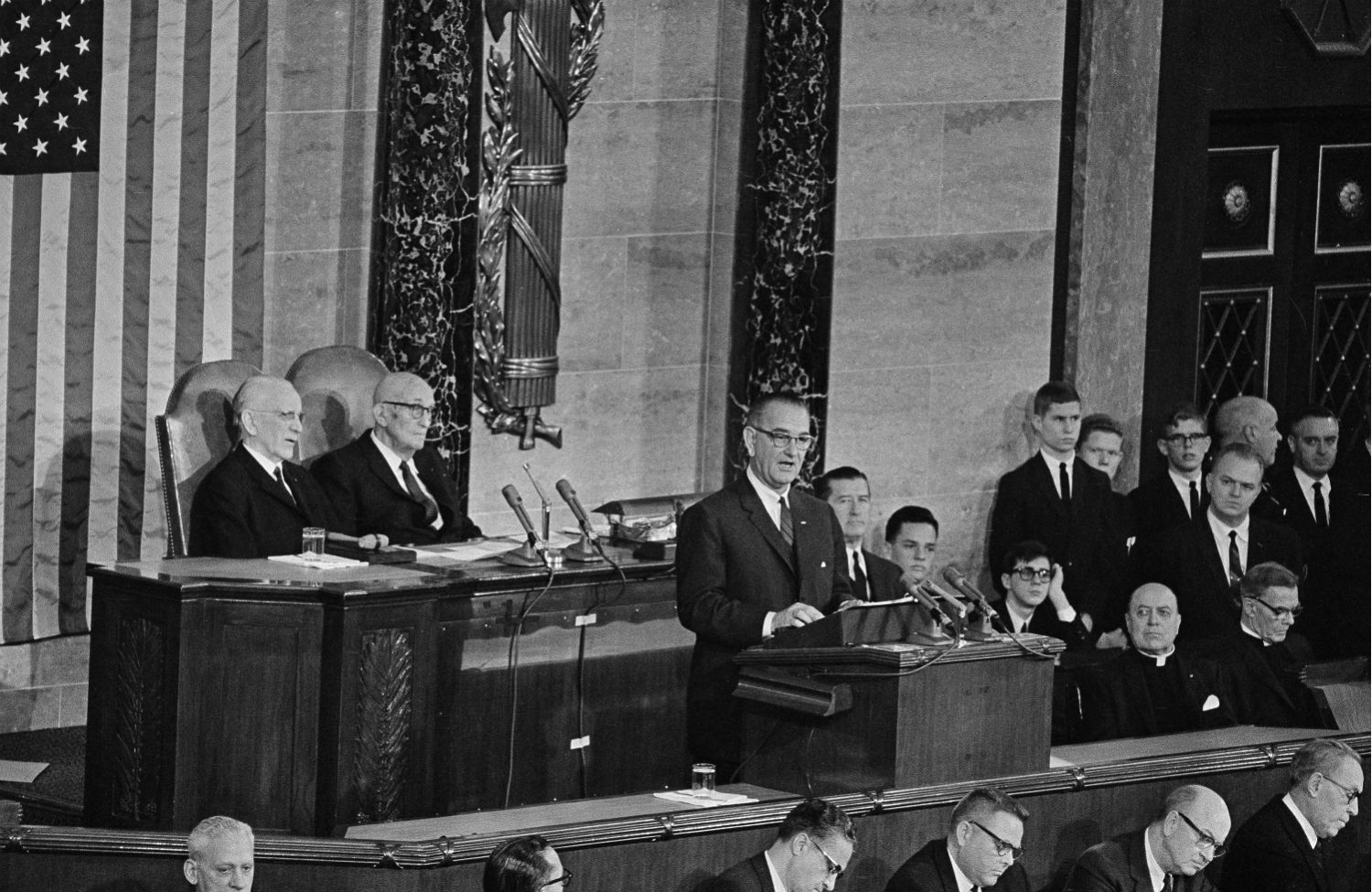Everyone is marking the 50th anniversary of President Johnson’s War on Poverty this week (here, here, here and here). That’s because LBJ declared war in his State of the Union speech 50 years ago on January 8, 1964.
Videos by Rare
But of course this is rubbish. The concept of government throwing money at poverty started centuries ago, not later than the Elizabethan Poor Law, enacted in the 1580s. And really, by the time that the Elizabethan Brits got around to the Poor Law, the problem of landless people wandering around homeless was at least a century old.
The reason was the Agricultural Revolution. Improved farming practices and transportation meant more food grown with less labor and lower prices. Since the Brit parents of the time kicked most of their kids out of the house at 10-12 years of age and sent them from their village into apprenticeships or service in a nearby town, a lot of people ended up homeless, at least until the mines and the factories opened up in the 19th century.
Then as now, the response of the ruling class was to throw money at the problem. LBJ’s War on Poverty featured Medicare and Medicaid, Food Stamps, job training, Head Start, and community action programs. As you can see, the money typically gets thrown at health providers and teachers and community organizers and other middle-class caring professionals before it gets to the poor in the form of free services.
Sometimes, as in the New Poor Law of 1834, the government built welfare custodial facilities, as in “workhouse,” to warehouse the poor. In the U.S. welfare reform of the 1990s, the idea was to time-limit welfare benefits and force the poor out to work.
President Obama’s approach is to crank up the money machine on all fronts, spewing out TANFs and EBTs, unemployment benefits, expanded Medicaid like there was no tomorrow.
This record of failure is all very well, but what is the alternative? I’m glad you asked.
Back in the 19th century private charity professionals developed an effective strategy for helping the poor. In “The Tragedy of American Compassion,” Marvin Olasky calls their strategy “The Seven Marks of Compassion” that goes from A to G. Suppose you encounter a poor person, without job, home, family, food, what should you do? This is what:
- Affiliation. Get the poor person reconnected to family or church or other social bond.
- Bonding. If the poor person is really alone, then the charity volunteer should bond with their client, and create affiliation.
- Categorization. Some people are truly helpless; some just need a little help finding a job. A few are just “shiftless and intemperate.”
- Discernment. Make sure that the person you are helping is really needy and isn’t already getting help somewhere else.
- Employment. “Labor is the life of society, and the beggar who will not work is a social cannibal feeding on that life.”
- Freedom. People should be able to get a job without having to pay a bribe or get certification or join a union.
- God. People have spiritual needs as well material needs.
The thing about a War on Poverty, or indeed any war, is that it needs an enemy to defeat and destroy, something that you can destroy with artillery, someone you can shoot with a rifle. What exactly is it that we have been trying to destroy for the last 50 years? You could ask your congressman.


